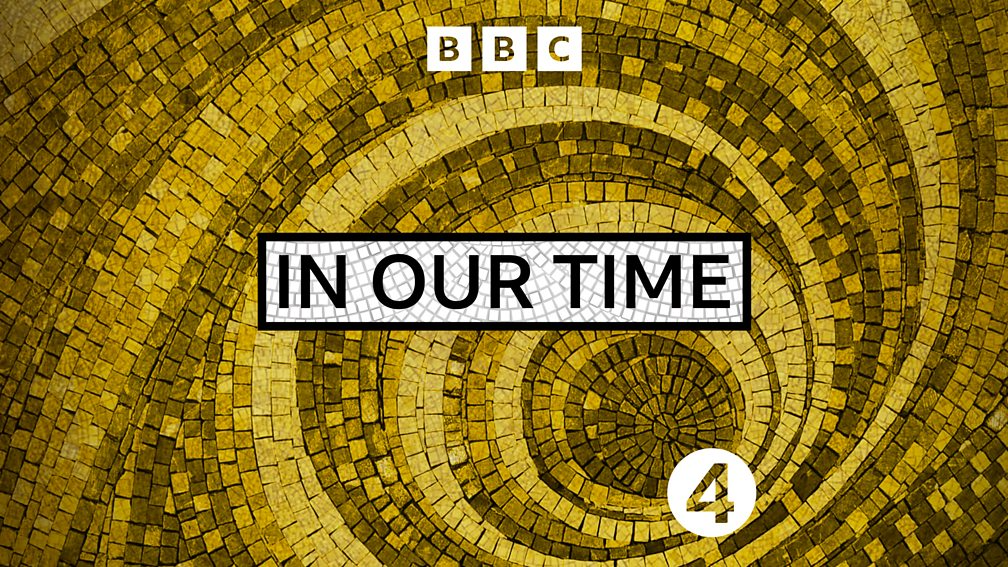“Science is a particular pleasure because I know so little about it.” - Melvyn Bragg
I often get asked, how do you know so many strange things. I normally just say Radio 4, because it's amazing for giving a widespread (if slightly elitist) view of the world. However one show in particular is a fountain of knowledge for anyone interested in strategy and behavioural economics. I personally think one of the benefits of Radio 4 is it randomness and eclecticism. It's a brilliant way to learn about the experiences of others that you wouldn't normally seek out. In Our Time is a particularly deep and intellectual show, which may put some people off at first. It can feel a bit dizzying because of all the names and events that people reference. However, you'd be amazed by how many things connect together, and so very soon names and events become familiar and you can see the 'tapestry'.
Synopsis
Google Gemini summary of the BBC Radio 4 series In Our Time and some excellent starting points for new listeners.
In Our Time offers a unique blend of scholarly depth and conversational clarity, covering everything from cosmology to Cleopatra. If you’re new to the series, begin with episodes like The Gin Craze, Photosynthesis or Plato’s Republic to experience its trademark blend of insight, breadth and engaging delivery.
A weekly 45‑minute live discussion programme, hosted by Melvyn Bragg on BBC Radio 4 since October 1998, covering history, science, philosophy, religion and culture (Wikipedia).
Typically features three leading academics per episode, guided by Bragg’s clear, direct questioning, making complex topics accessible (Wikipedia).
Offers over 1,000 episodes, with its full archive freely available—one of Radio 4’s most successful and influential intellectual programmes (Wikipedia).
Why It’s Worth Starting
Broad and rich subject range: From black holes to Plato’s Republic, from the Gin Craze to Darwin’s theory of evolution .
Engaging presentation: Bragg’s brisk, no-nonsense style keeps the conversation lively and informative (The New Yorker).
Academic depth meets accessibility: Experts dig thoughtfully into topics without jargon-heavy barriers .
Ten Excellent Episodic Entry Points
For a rich introduction, these episodes offer a diverse taste of the show’s range and approach.
These episodes are commonly highlighted in listener polls and critic reviews—for example, The New Yorker noted a listener “Top Ten” featuring many of these topics (Interconnected, The New Yorker, Apple Podcasts).
The Gin Craze – Exploring 18th-century Britain’s moral panic and its social consequences
1816 – The Year Without a Summer – How volcanic eruption disrupted global climate and cultures
Photosynthesis – A deep dive into the science that underpins life on Earth
Black Holes – A journey through one of physics’s most fascinating frontiers
Plato’s Republic – A foundational text in Western philosophy and political theory
Darwin and the Theory of Evolution – Tracing the development and impact of evolutionary thought
Hildegard of Bingen – Life and legacy of a medieval polymath: abbess, composer, mystic
Cleopatra – The politics, myth and agency of Egypt’s final pharaoh
Period Table – The story and significance of chemistry’s organising principle
The Sack of Rome (1527) – A turning-point event in Church history and Renaissance politics
The Braggoscope
The Braggoscope is an independent project created by tech writer Matt Webb. It’s a data-driven tool that analyses every episode of In Our Time, helping listeners explore the archive in new ways.
Key Features:
Visual timeline of all episodes since 1998
Categorised by topic (e.g. history, science, religion, philosophy)
Shows episode length, guest gender balance, and patterns over time
Helps you discover lesser-known or popular episodes
Why It’s Useful:
The In Our Time archive is huge—over 1,000 episodes. The Braggoscope makes it easier to search or browse by interest.
It can help you spot trends, like how philosophy episodes have changed over time, or when female guests became more common.
It’s a practical tool for anyone wanting to listen more systematically or track down specific types of episodes.
Where to Find It:
You can explore it here:
https://interconnected.org/home/2023/02/07/braggoscope
It’s not affiliated with the BBC, but it’s a clever and respectful tribute to the programme’s reach and consistency.


